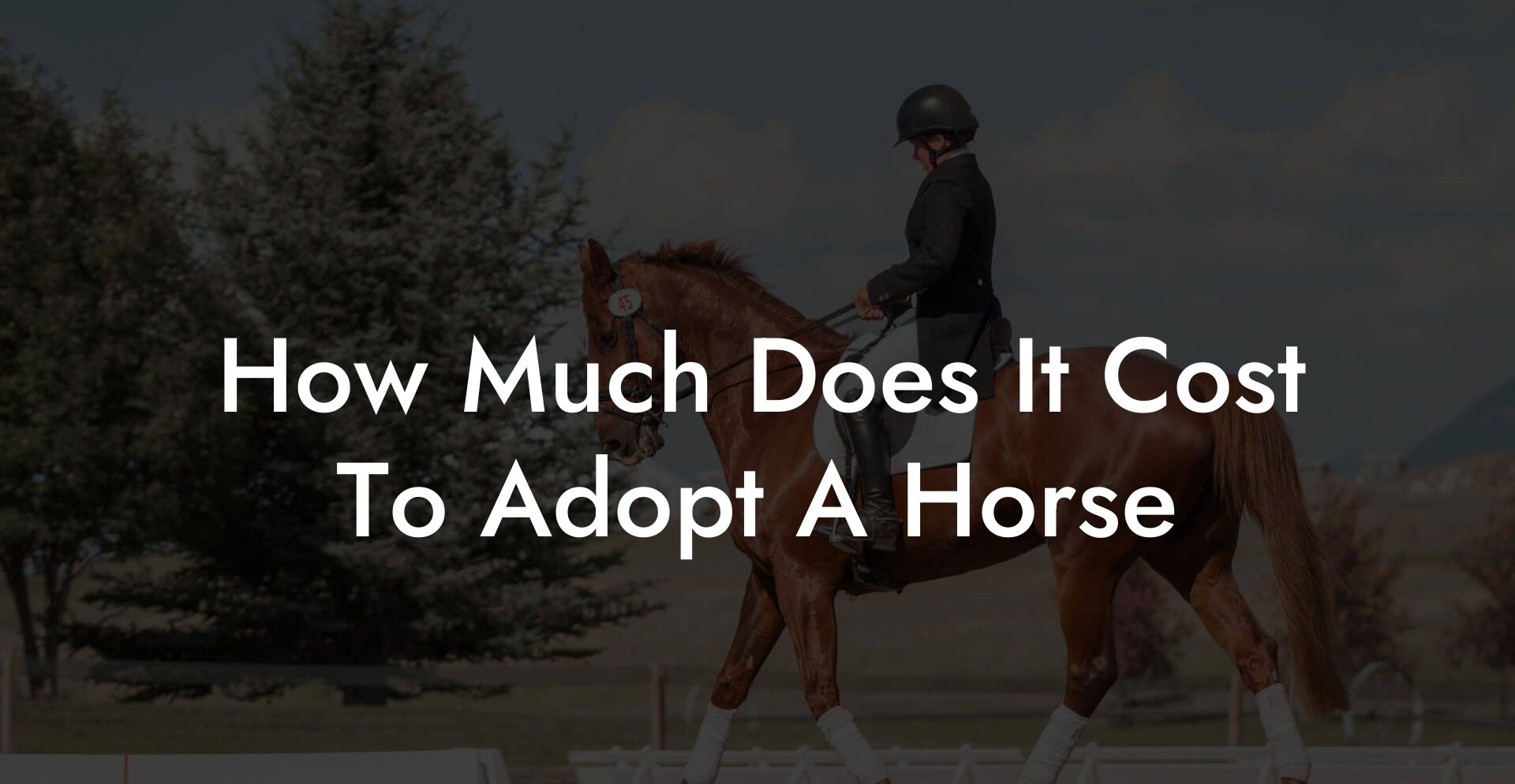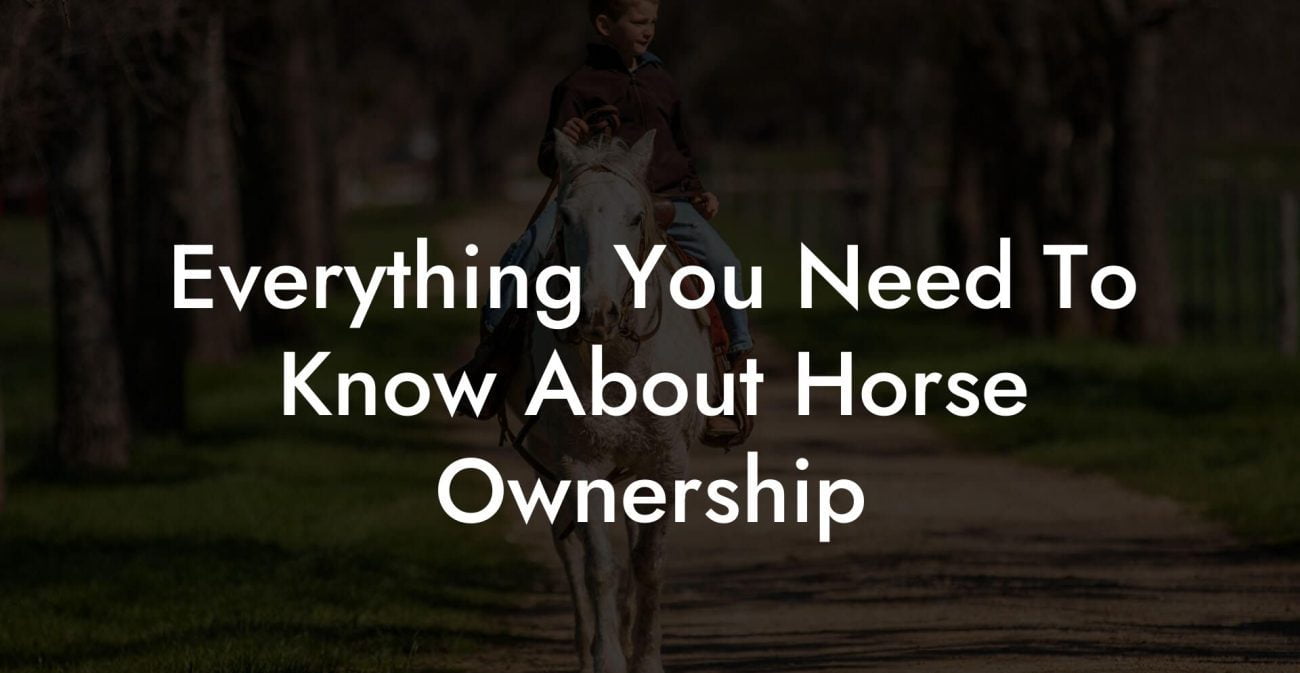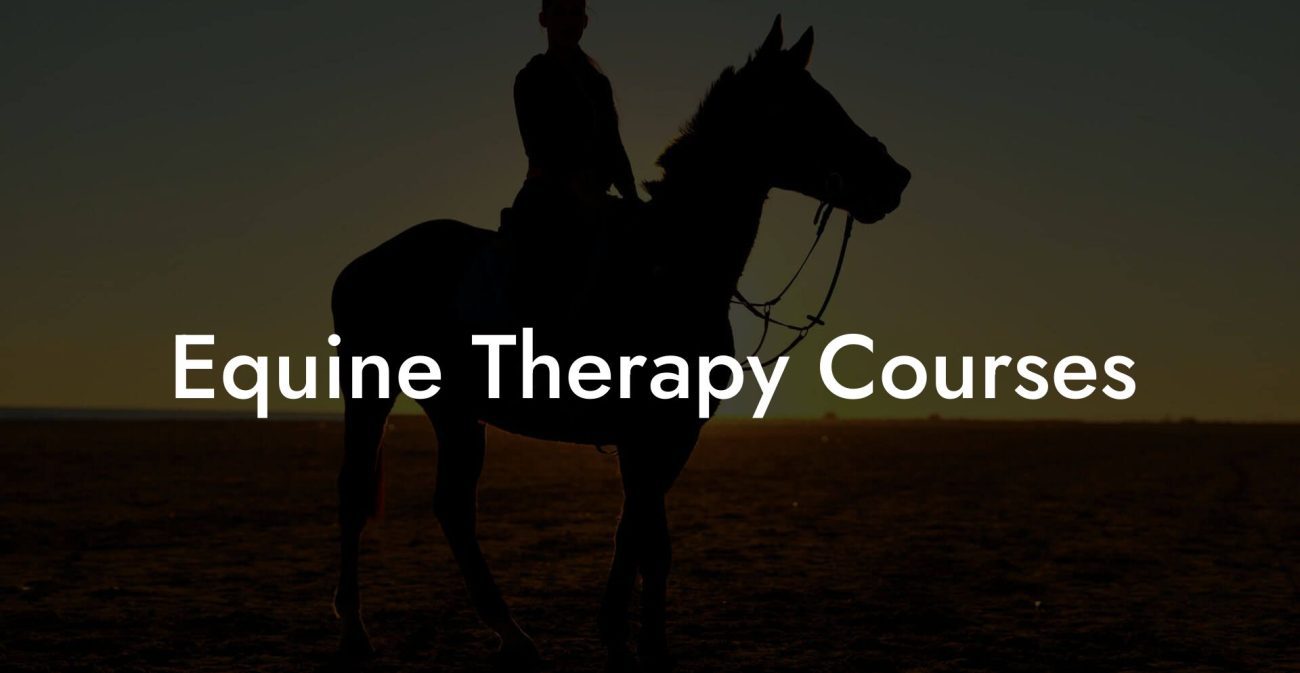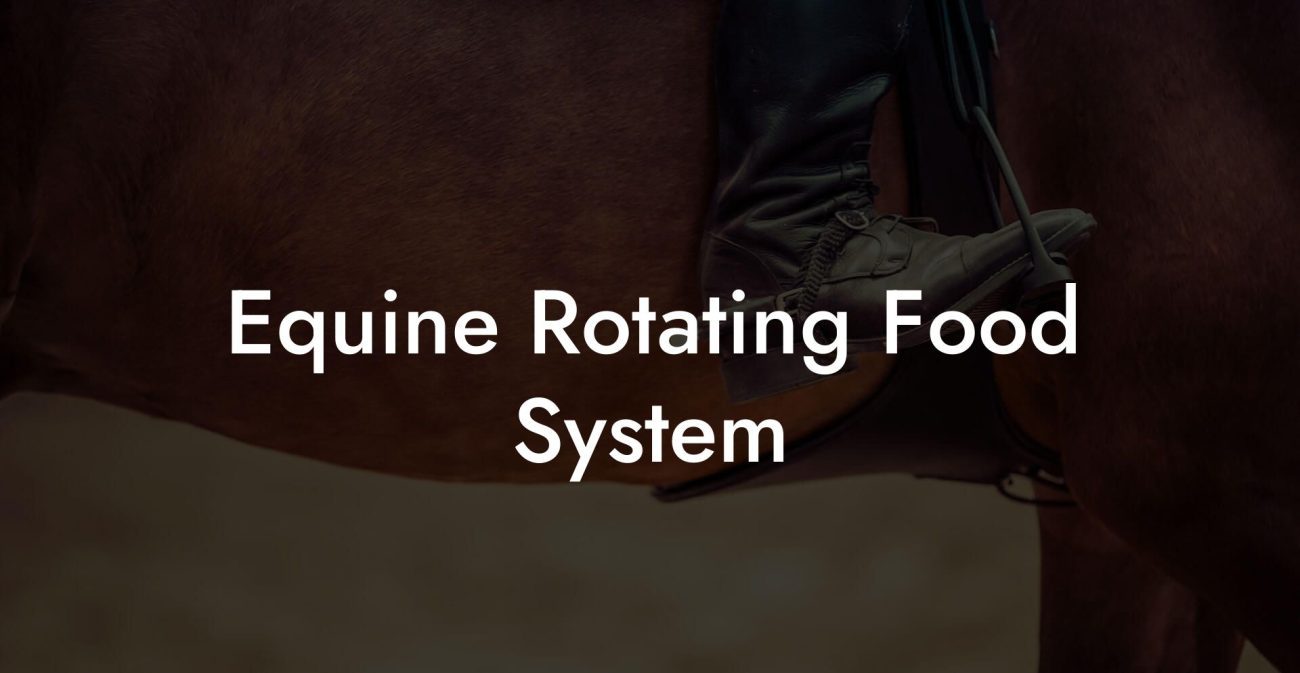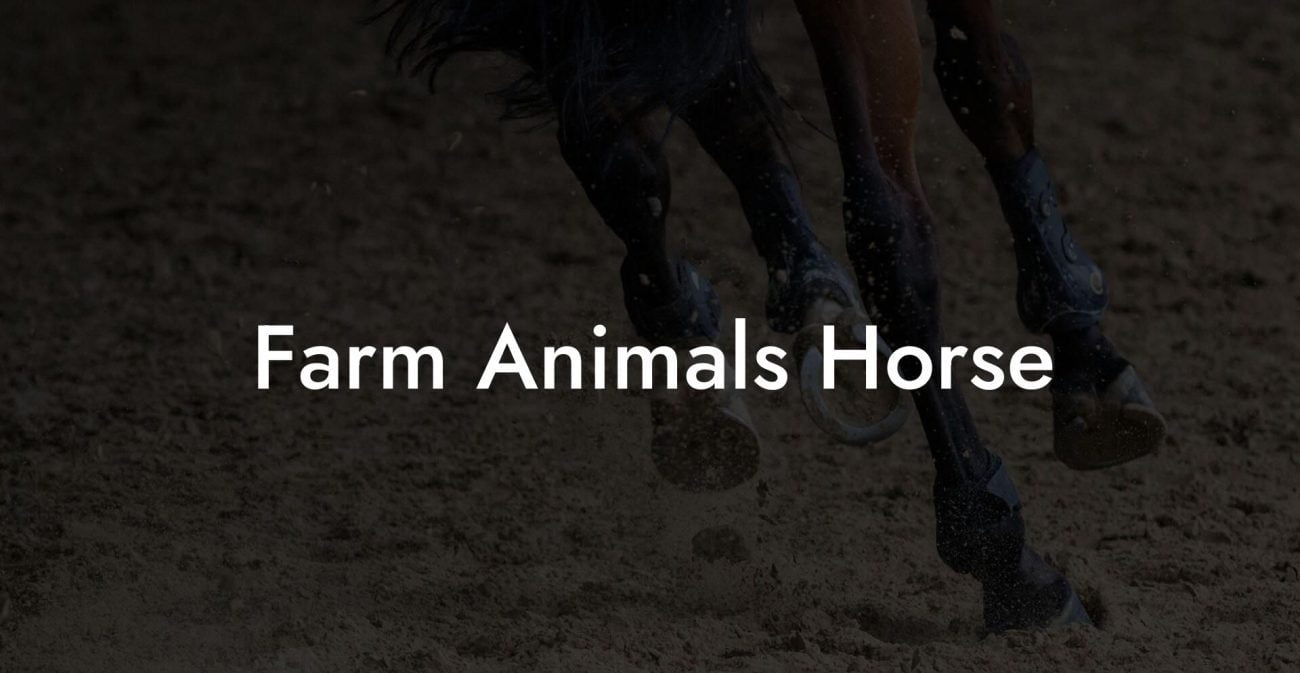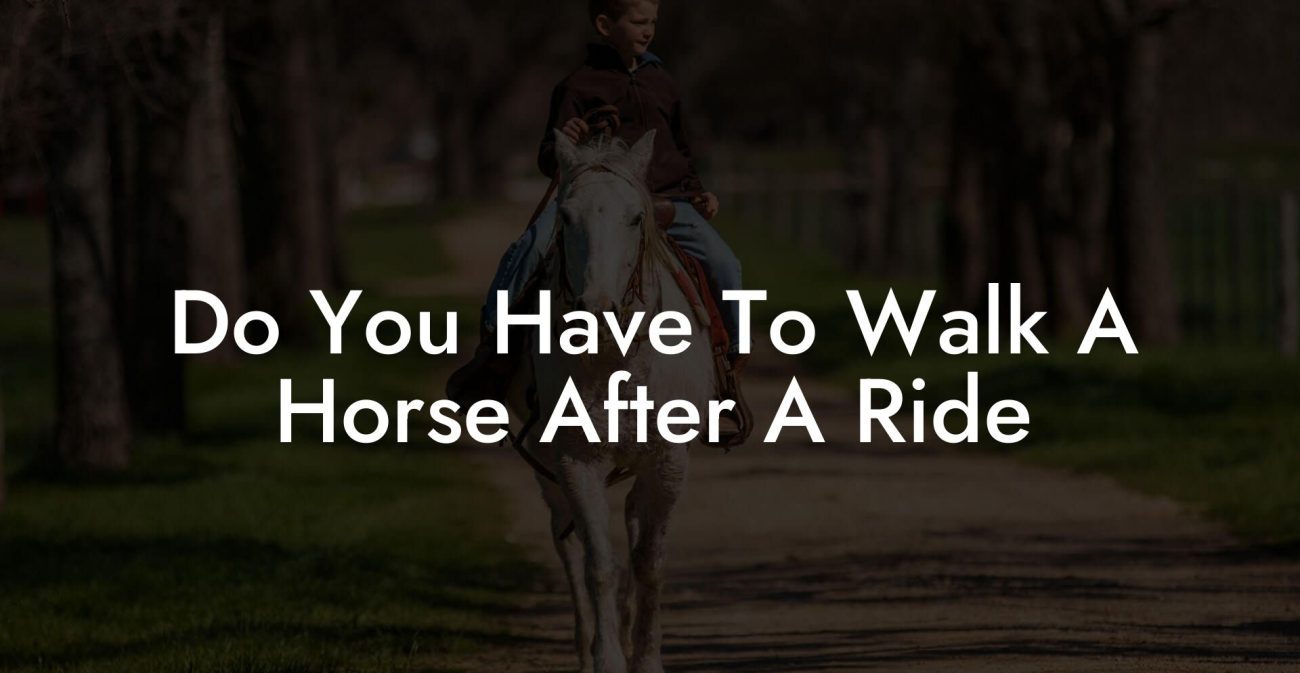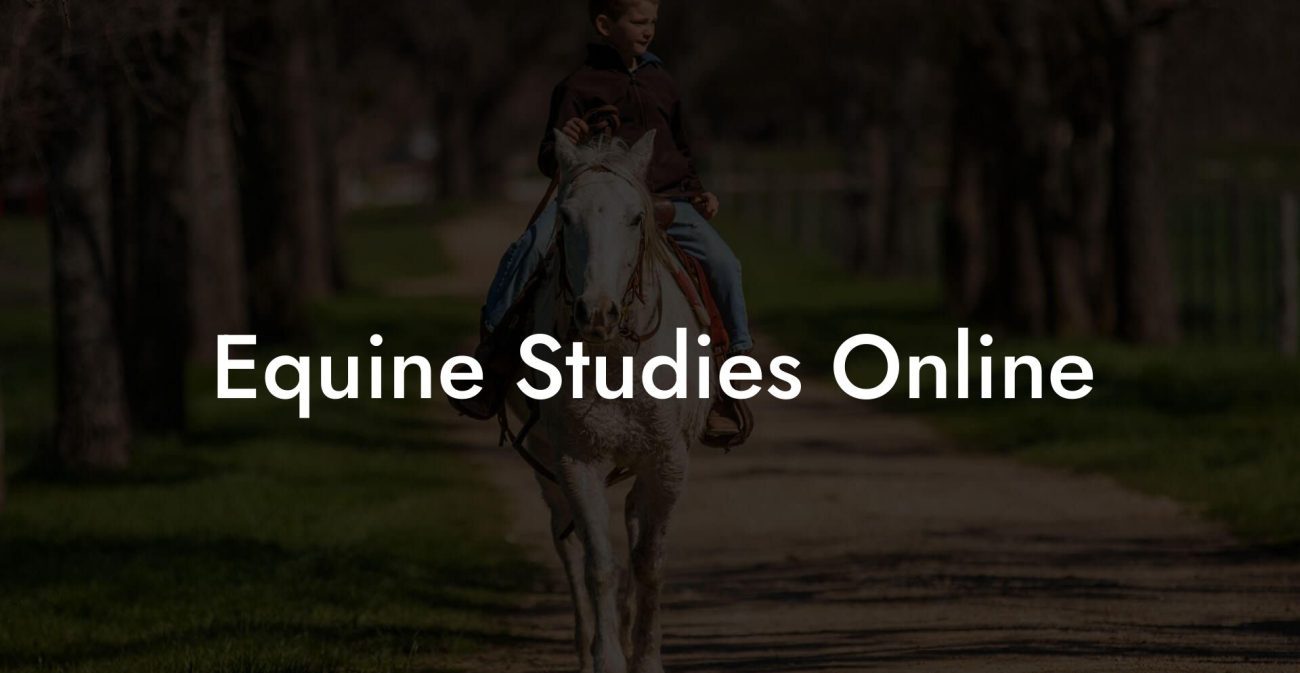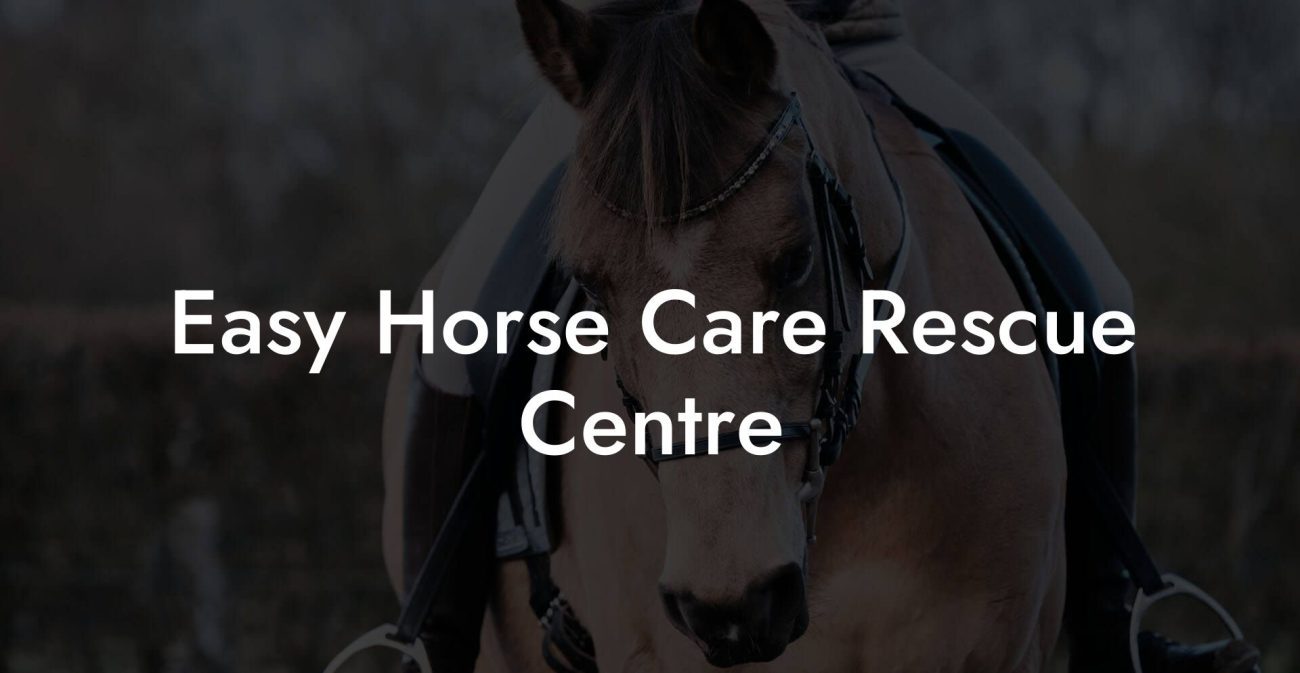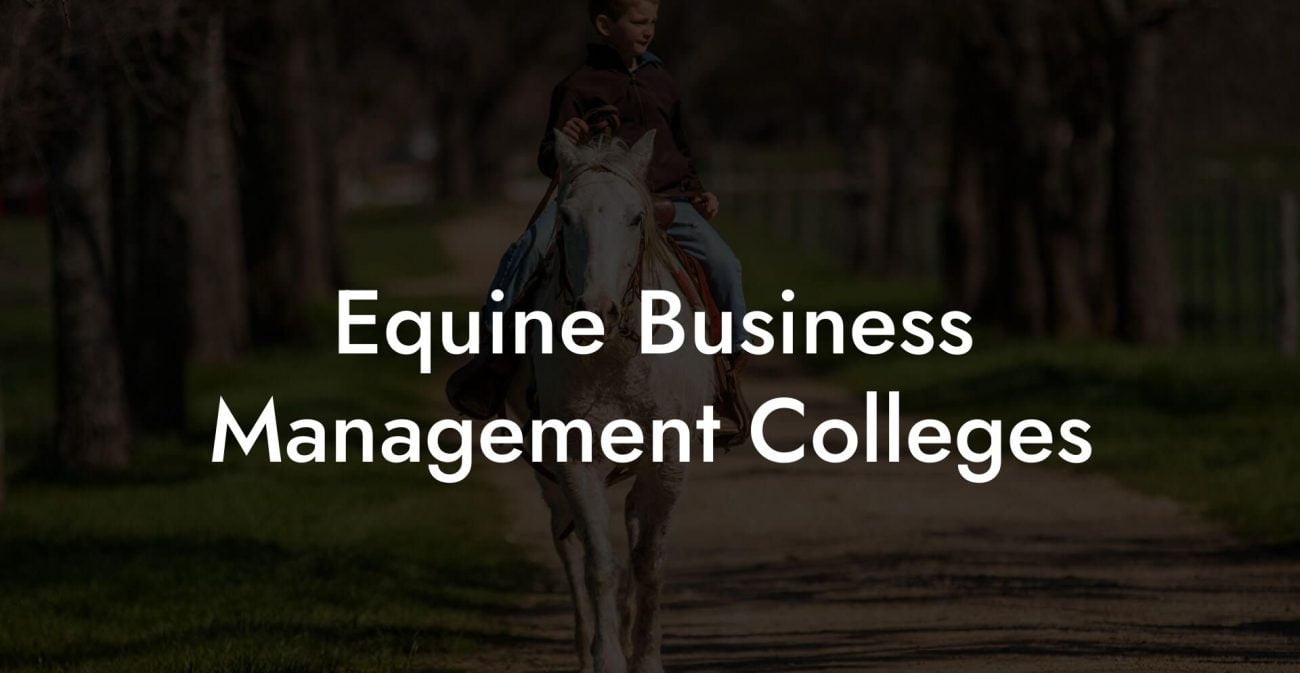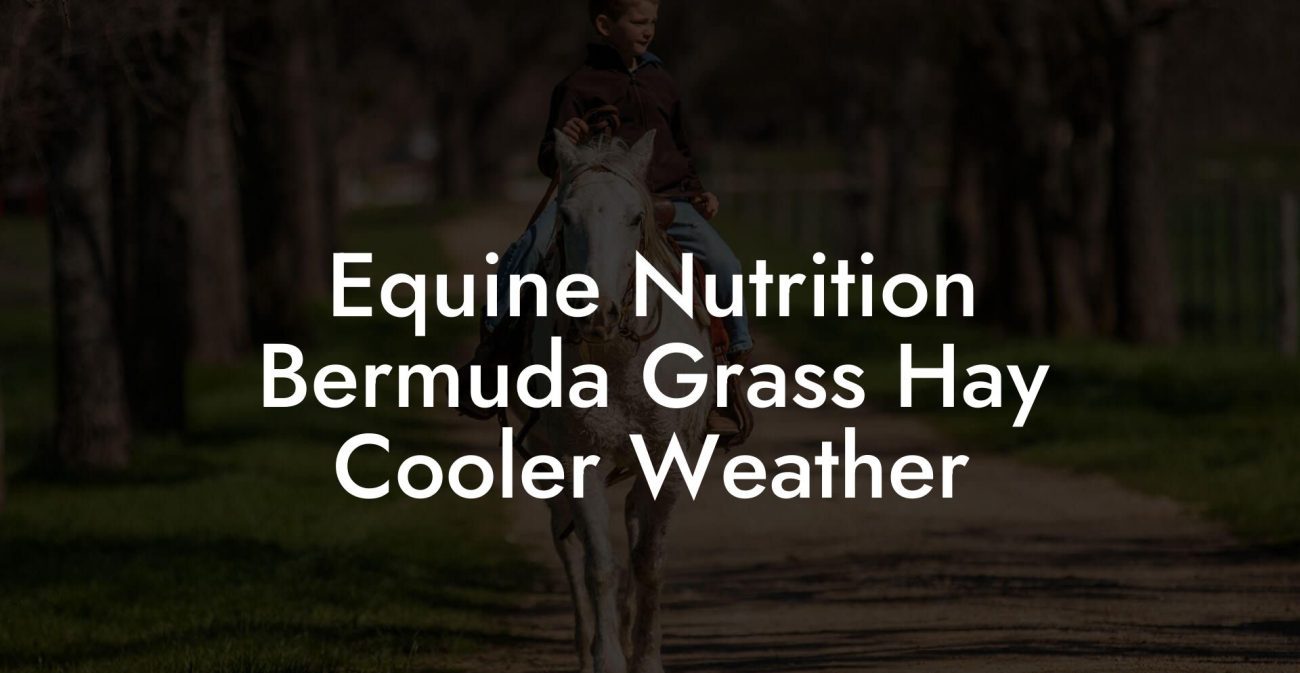When you think about welcoming a majestic, hoofed friend into your life, you may wonder if your bank account is ready for the ride. Adopting a horse isn’t like picking up a latte on a busy city morning—it’s a full-blown lifestyle choice that comes with as many emotional rewards as it does financial considerations. From adoption fees to ongoing maintenance and everything in between, let’s gallop through the costs, pitfalls, and surprises of horse adoption in a way that’s as engaging as a midnight ride under a starry sky.
Quick Links to Useful Sections
- Understanding the True Price of Compassion: The Real Cost to Adopt a Horse
- Demystifying the Adoption Process: Where Your Journey Begins
- Finding the Right Horse Adoption Program or Rescue Organization
- The Application and Approval Process
- Breaking Down the Costs: Upfront and Ongoing Expenses
- Upfront Expenses: Getting Off to a Solid Start
- Ongoing Expenses: The Lifelong Commitment
- Factors That Influence the Cost to Adopt a Horse
- Age and Health of the Horse
- Breed and Lineage
- Rescue Versus Private Sale
- Geographic Location
- Experience Level and Preparedness
- Choosing the Perfect Equine Companion for Your Lifestyle
- Personality and Temperament
- Training and Background
- Health and Physical Condition
- Long-Term Compatibility
- The Ongoing Commitment: Beyond Adoption Fees and Initial Costs
- Routine Veterinary and Farrier Visits
- Daily Feed, Supplements, and Nutrition
- Equipment Upkeep and Upgrades
- Insurance and Unexpected Emergencies
- Budgeting and Financing Strategies for Aspiring Equine Enthusiasts
- Saving Strategically for Your Future Friend
- Exploring Grants and Subsidies
- Community Support and Shared Resources
- Financing Options and Loans
- Real-Life Success Stories: Riding Through Challenges
- The Tale of Emma and Midnight
- Jake’s Journey from Uncertainty to Confidence
- Lila’s Leap Into the Equestrian World
- Resources and Community Support: Your Next Steps
- Mapping Out Your Future: Planning for a Lifetime of Equine Joy
- Frequently Asked Questions About Horse Adoption Costs
- Your Equine Adventure Awaits: Embrace the Journey with Confidence
Understanding the True Price of Compassion: The Real Cost to Adopt a Horse
At first glance, adopting a horse might seem like an act of kindness with a price tag attached. But the true cost of horse adoption goes far beyond a simple fee—it encompasses a spectrum of expenses that ensure your equine companion receives the care, comfort, and support they deserve. If you’re pondering the purchase of a life-long friendship fueled by neighs and whinnies, it’s crucial to grasp both the upfront costs and the long-term financial commitments.
In our comprehensive guide, we’ll break down everything from the initial adoption fees to recurring maintenance expenses, such as veterinary appointments, feed, stabling, and even grooming. Understanding these multifaceted costs will empower you to make informed decisions and plan a financially sound future for both you and your new four-legged friend.
Whether you're a seasoned equestrian or a curious newbie, we’re here to turn the intimidating financial landscape of horse adoption into a friendly, informative ride—complete with all the perks of a well-groomed stallion and the comfort of knowing you’re prepared for the journey ahead.
Demystifying the Adoption Process: Where Your Journey Begins
Just as every epic tale begins with a single step, the process of adopting a horse starts with research, paperwork, and a heart full of hope. The journey to horse adoption is multi-layered, and understanding the process is a critical first step to guaranteeing that both you and your equine partner share a happy ending.
Finding the Right Horse Adoption Program or Rescue Organization
The world of horse adoption is vast, and there’s a rescue organization or a sanctuary out there that aligns with your values and expectations. Here are some essential tips to consider:
- Research Local Organizations: Look into reputable organizations, rescues, and sanctuaries in your area that specialize in horse adoption. Peer reviews, testimonials, and success stories are a goldmine of information.
- Adoption Criteria and Requirements: Organizations typically require prospective adopters to complete an application process that assesses your suitability for caring for a horse. This can include background checks, financial evaluations, and even interviews.
- Site Visits Matter: Ensure that you visit the facilities in person if possible. Nothing beats experiencing the environment firsthand to confirm that it’s a safe and nurturing space for your future companion.
- Meet-and-Greets: Spending time with potential equine matches is crucial. Matching personalities and temperaments upfront can lead to a harmonious long-term relationship.
By taking the time to research, ask questions, and plan your visit, you’re setting the stage for a successful adoption that benefits both you and the horse.
The Application and Approval Process
Once you’ve found a promising horse adoption program, the next phase is the application process. This stage often includes detailed paperwork, home or facility inspections (if you plan on boarding the horse on your property), and interviews designed to gauge your readiness for the commitment. Adoption fees may include processing charges, administrative fees, and sometimes even a refundable deposit.
For many rescue organizations, these fees contribute to the ongoing care of the horses still waiting for their forever homes. While the paperwork might feel as intimidating as a towering stable roof during a rainstorm, remember that every form filled and every question answered is a step closer to a rewarding, life-changing journey.
Breaking Down the Costs: Upfront and Ongoing Expenses
When it comes to adopting a horse, preparation is everything. Knowing exactly where your money is going ensures that you’re not blindsided by unexpected expenses later on. The cost to adopt a horse can typically be divided into two main categories: upfront costs and ongoing expenses.
Upfront Expenses: Getting Off to a Solid Start
The upfront costs associated with adopting a horse include more than just the adoption fee that the rescue organization or sanctuary might charge. Here are several elements to consider:
- Adoption Fee: Ranging anywhere from a few hundred to several thousand dollars, this fee covers various administrative and processing expenses incurred by the organization.
- Pre-Adoption Veterinary Exam: A thorough physical examination is essential to determine the horse’s health status. This exam helps catch any pre-existing conditions and is often required before finalizing the adoption.
- Quarantine Costs: If the horse is coming from another location or rescue, a quarantine period may be necessary to protect your existing animals and ensure that your new friend is free from contagious conditions.
- Travel and Transportation: Whether you’re picking the horse up yourself or shipping it, transportation costs can add up quickly. Factor in travel expenses, trailers, or hiring a professional transport service.
- Initial Supplies: Think of these as the essentials to kickstart your horse’s new life. This may include halters, grooming supplies, feed buckets, and first-aid kits. Don’t forget a comfy stall or paddock setup if you’re not boarding your horse immediately.
Planning for these upfront costs will ensure that from the moment your horse steps hoof into your life, they have everything they need to thrive.
Ongoing Expenses: The Lifelong Commitment
Beyond the initial outlay, keeping a horse in top form involves a variety of recurring expenses. Let’s gallop through some of the major items on your budget:
- Food and nutrition: High-quality feed, hay, and grain form the cornerstone of a healthy diet for your horse. Prices may vary depending on your location and the specific dietary needs of your horse.
- Veterinary Care: Just like humans, horses need regular check-ups, vaccinations, dental care, and occasional treatments for injuries or illnesses. Remember, a healthy horse can avoid costly treatments later on.
- Farrier Services: Regular hoof trimming and, if necessary, shoeing are essential tasks that need to be budgeted on a monthly or bi-monthly basis. These services keep your horse’s hooves in peak condition and prevent injuries.
- Stabling and Boarding: If you don’t have your own property to accommodate your horse, boarding fees at a stable or equestrian center can become a significant monthly expense. Prices vary widely, so researching local options is key.
- Grooming and equipment Maintenance: Routine grooming ensures your horse remains in good condition, and investing in proper grooming tools can enhance this experience. Additional equipment, such as saddles, bridles, and blankets, may need periodic replacement or maintenance.
- Insurance and Registration Fees: Depending on your region, you might consider insurance for your horse as a safety net, as well as registration fees if you plan to compete in equestrian events or shows.
- Unexpected Costs: Emergencies happen—a sudden illness, injury, or the need for specialized treatment can lead to unplanned expenses. Setting aside a dedicated savings fund can cushion these unexpected bumps in the road.
All these recurring costs add up over time, so it’s wise to plan a budget that not only covers these essentials but also leaves room for unexpected expenditures. Think of it as investing in a friendship where the dividends return in the form of love, loyalty, and countless memorable rides.
Factors That Influence the Cost to Adopt a Horse
You might be wondering what drives the cost to adopt a horse. While there isn’t a one-size-fits-all answer, several factors play a crucial role in determining the overall expense.
Age and Health of the Horse
The age and health status of a horse are significant determinants of cost. Younger horses might come with lower initial fees but may require extensive training and care adjustments, whereas older horses might have higher upfront veterinary costs but can offer a more laid-back companionship.
Breed and Lineage
Certain breeds are in higher demand or come with prestigious bloodlines, which may reflect in higher adoption fees. Conversely, horses from rescues or sanctuaries often have fees that are designed to cover basic care and rehabilitation.
Rescue Versus Private Sale
The cost can also vary dramatically depending on whether you’re adopting through a rescue organization or dealing with a private seller. Rescues typically charge lower fees to ensure the adoption process is accessible to animal lovers, while private sales may come with a premium for a well-bred or extensively trained horse.
Geographic Location
Location truly matters in the world of horse care. Adoption fees, boarding costs, and even feed prices can differ based on where you live. Urban areas may see higher costs due to limited space and higher overheads, whereas rural settings might offer more competitive prices.
Experience Level and Preparedness
Assessors often take into account your experience and preparedness for handling a horse. If you’re new to the equestrian scene, you might need to invest more in training and consulting services to ensure that both you and your horse enjoy a safe and harmonious relationship.
By understanding these contributing factors, you can better gauge what to expect and customize your search for a horse that fits both your financial plan and lifestyle.
Choosing the Perfect Equine Companion for Your Lifestyle
Adopting a horse isn’t just about a financial commitment—it’s about forging a bond with a magnificent creature whose personality, history, and energy align with your own. To ensure that you and your equine partner have a successful, fulfilling relationship, consider these critical factors when choosing the right horse:
Personality and Temperament
Every horse has a unique personality. Some are playful and spirited, while others exude calm and trust. Spending ample time with potential adoptees, interacting with them, and attending trial rides can help you understand their temperament better. It’s all about that first click—the moment you know you and your horse are meant to be.
Training and Background
A horse’s training background can provide valuable insights into their current behavior and future potential. Horses with well-documented training histories might be better suited for competitive sports or therapeutic riding programs. On the other hand, a less-trained horse might be a rewarding project for those looking to build a strong, trusting relationship from scratch.
Health and Physical Condition
Before finalizing your decision, a thorough veterinary check-up is essential. This not only confirms the horse’s current health status but also reveals any underlying conditions that might require special attention. A scientifically-informed diagnosis today can save you thousands in veterinary costs tomorrow.
Long-Term Compatibility
Consider your lifestyle, available space, and long-term goals before adopting. Whether you’re looking to participate in equestrian sports, engage in trail rides, or simply have a therapeutic companion in your life, ensuring that the horse you adopt fits into your daily routine and future aspirations is key.
Matching a horse’s personality and abilities with your expectations will pave the way for a rewarding, long-lasting partnership—a true win-win in both financial planning and emotional fulfillment.
The Ongoing Commitment: Beyond Adoption Fees and Initial Costs
Beyond the bright-eyed stage of adoption lies a commitment that goes on for years—a tapestry of daily routines, seasonal changes, and personal growth alongside your equine partner. Understanding the ongoing financial, emotional, and physical investments will help you maintain a sustainable and fulfilling relationship.
Routine Veterinary and Farrier Visits
Health isn’t a one-time expense—it’s an ongoing commitment. Regular veterinary check-ups, vaccinations, and dental care are necessary to keep your horse in optimal condition. Equally important are farrier visits, which should be scheduled every 6-8 weeks to ensure that hooves remain healthy and free of issues that could disrupt your horse’s stride.
Daily Feed, Supplements, and Nutrition
Horses are dynamic creatures with evolving nutritional needs. A balanced diet powered by premium hay, grain, and supplements not only fuels their energy levels but also contributes to overall health. As your horse ages or their activity level shifts seasonally, their nutritional regimen may require adjustments.
Equipment Upkeep and Upgrades
Over time, wear and tear on equipment such as saddles, bridles, and grooming tools is inevitable. Investing in quality products and maintaining them properly not only extends their life but ensures safety and comfort for your beloved animal. Occasional upgrades to riding gear or barn improvements are a part of the journey.
Insurance and Unexpected Emergencies
Life with a horse can be unexpectedly wild—in a good way. Insuring your horse can offset costs during emergencies, accidents, or unforeseen illnesses. Even if it's a small percentage of your overall budget, insurance is a wise investment that offers peace of mind when the unexpected occurs.
The long-term aspect of horse care means your commitment extends well beyond the initial adoption fee. By planning thoroughly, budgeting realistically, and keeping a proactive approach to care, your financial and emotional investment in your horse becomes a source of tremendous joy and fulfillment.
Budgeting and Financing Strategies for Aspiring Equine Enthusiasts
If you’re worried that the cost to adopt a horse might reel you in with its high price tag, fear not—there are plenty of creative budgeting and financing strategies tailored for Gen-Z and millennial equestrians. Smart planning and community resources can help bring your equine dreams within reach without breaking the bank.
Saving Strategically for Your Future Friend
Start by creating a detailed budget that accounts for both upfront costs and recurring expenses. Open a dedicated savings account for your horse adoption fund, and set small, achievable savings goals. Every dollar set aside is a step closer to a stable partnership.
Exploring Grants and Subsidies
In some regions, local agricultural departments, wildlife conservation organizations, or even equine therapy nonprofits offer grants or subsidies for prospective horse adopters, particularly those willing to provide sanctuary to rescue animals. Research these opportunities thoroughly—they could significantly ease your financial burden.
Community Support and Shared Resources
Consider joining local equestrian clubs, online communities, or social media groups where experienced horse owners share tips and arrange share-boarding options. Sometimes, partnering with fellow enthusiasts to share boarding or care responsibilities can result in huge savings and provide invaluable support.
Financing Options and Loans
Some financial institutions or specialized equine lenders offer loans or financing plans tailored specifically to horse owners. With flexible payment plans and competitive interest rates, these financing options can help cover the adoption fee or immediate veterinary costs, enabling you to spread the expense over a manageable period.
With a strategic budgeting plan aligned with available community resources and financing options, adopting a horse becomes an achievable and sustainable goal—combining financial savvy with a heartfelt commitment.
Real-Life Success Stories: Riding Through Challenges
Sometimes, nothing speaks louder than a real-life tale of transformation. Across the country, countless individuals have embarked on the journey of horse adoption, overcoming financial hurdles and personal challenges along the way.
The Tale of Emma and Midnight
Emma had always been passionate about horses, but budget constraints made the dream feel distant. After months of saving diligently and researching various rescue organizations, she finally adopted a gentle mare named Midnight. With the help of community resources and a modest grant, Emma managed to cover the initial adoption expenses. Today, the two share daily rides, and Emma’s experience serves as a shining example of how budgeting and determination can turn an aspiration into a cherished reality.
Jake’s Journey from Uncertainty to Confidence
For Jake, adopting a horse was more than just a financial decision—it was a transformative life experience. With limited savings and a deep emotional connection to horses, Jake found a suitable match through a local rescue. Although the upfront costs were challenging, he navigated them through a combination of micro-loans and community-hosted fundraisers. Now, Jake not only enjoys riding but has also become an active advocate for affordable equine adoption, proving that passion and perseverance can overcome monetary obstacles.
Lila’s Leap Into the Equestrian World
Lila always dreamed of having a loyal equine companion to join her on long trail rides and weekend escape adventures. With a limited income as a young professional, she initially hesitated. Through careful research and by tapping into digital communities of fellow equestrians, Lila learned about cost-saving boarding options and nutrition strategies that helped her manage expenses. Her journey not only enriched her life with wonderful experiences but also paved the way for her to mentor other aspiring horse adopters.
These inspiring stories underscore the fact that, with persistence, creativity, and community support, the dream of owning a horse is not reserved only for the wealthy—it’s a dream accessible to anyone ready to invest heart, time, and a dash of financial savvy.
Resources and Community Support: Your Next Steps
The journey to adopting a horse is brimming with both exciting opportunities and moments that require careful planning. Thankfully, there’s a vibrant community of equine enthusiasts ready to support you every step of the way. Here are some actionable steps to ensure you’re well-equipped for your equine adventure:
- Join Online Forums and Social Media Groups: Platforms like Facebook, Reddit, and Instagram host thriving equestrian communities where you can exchange advice, success stories, and practical tips about horse care and adoption.
- Subscribe to Equine Newsletters and Blogs: Stay ahead of trends in horse care, new financing options, and the latest research on equine nutrition by following expert blogs and newsletters.
- Attend Local Equine Events and Workshops: Participating in horse shows, training workshops, and community events can help you network, learn more about proper care, and even find mentors who’re willing to share their expertise.
- Consult with Veterinary Specialists and Experienced Trainers: Don’t hesitate to reach out to professionals who can guide you through the initial hurdles of horse adoption. Their advice on nutrition, exercise regimens, vaccination schedules, and more can be invaluable.
- Explore Financial Assistance Programs: Check with local animal shelters, agriculture departments, or non-profit organizations that support animal welfare for any grant programs or reduced-cost services aimed at promoting responsible horse ownership.
Whether you’re at the beginning of your search or ready to fill out adoption paperwork, harnessing the power of community and informed resources is a critical next step. Not only does this support system help you manage the financial aspects, but it also enriches your journey with expert insights and shared adventure.
Mapping Out Your Future: Planning for a Lifetime of Equine Joy
The decision to adopt a horse is a monumental one, filled with dreams of open pastures, bonding moments, and the promise of a lifelong partnership. As you plan for an equestrian future, it’s essential to build a strategy that accounts for every financial, personal, and logistical detail.
Start by creating a comprehensive financial roadmap that delineates initial costs, recurring expenses, and a cushion for emergencies. Leverage the resources provided by your community, and never hesitate to seek advice from seasoned experts who know that while horses may cost money, their unconditional love and joy are priceless.
Whether you envision competitive riding, weekend trail adventures, or simply a serene companion in your daily life, aligning your goals with realistic budgeting and proactive planning will set you on the path to long-lasting happiness. Your journey with your equine friend begins with clear intention, meticulous planning, and a hearty dose of passion—elements that together form the blueprint of a rewarding life.
Frequently Asked Questions About Horse Adoption Costs
Below, we answer some of the most commonly asked questions about the financial aspects of adopting a horse. These insights aim to demystify the complex web of expenses and help you feel confident in your planning.
1. How much does it typically cost to adopt a horse?
Adoption fees can range from a few hundred dollars to several thousand dollars, depending on the organization, horse’s age, health, and other factors. Keep in mind that the fee is only one part of the total cost, as there are ongoing expenses like veterinary care, feed, and boarding to consider.
2. What are the most significant ongoing costs of horse care?
Ongoing expenses include regular veterinary and farrier visits, quality feed and nutritional supplements, stabling or boarding fees, grooming supplies, and occasional equipment upgrades. It’s important to budget for these recurring expenses to ensure your horse remains healthy and happy.
3. Can I adopt a horse on a budget?
Yes, many successful horse adoptions have been made possible through careful budgeting, creative financing options, community support, and sometimes grants or subsidies offered by local organizations.
4. Are there financial resources or programs specifically for first-time horse adopters?
Absolutely. Many equine organizations, rescue groups, and even local agricultural programs offer financial assistance, training workshops, and community programs designed to support first-time horse adopters.
5. How do transportation costs factor into the overall expense?
Transportation costs—whether hiring a professional service or investing in a trailer—can add significantly to the initial expenses. Always account for these costs in your financial planning, as moving a horse safely and comfortably is crucial.
6. Is insurance recommended for my newly adopted horse?
While optional, insurance can be a wise investment, particularly for covering emergency veterinary care or accidents. It’s recommended to research and compare policies to find one that suits your budget and your horse’s needs.
7. Do adoption fees vary by geographic location?
Yes, geographic factors such as local economic conditions, availability of rescue organizations, and boarding costs can influence the overall fees and expenses associated with horse adoption.
8. What should I do if unexpected expenses arise?
It’s always wise to maintain an emergency fund dedicated to your horse’s care. Unexpected costs are inevitable, so regular savings and a proactive approach to budgeting can help mitigate financial shock.
9. How can I prepare financially for the long-term commitment of horse care?
Begin by creating a detailed budget that outlines both the initial and recurring costs of care. Additionally, explore affordable financing options, saving strategies, and community resources designed for equine enthusiasts.
10. Are there financing options specifically for covering adoption fees?
Some organizations and financial institutions offer loans or financing plans tailored for horse adoption and related expenses. It’s worthwhile to inquire about these options during the application process if upfront costs are a concern.
Your Equine Adventure Awaits: Embrace the Journey with Confidence
Adopting a horse is much more than a financial transaction—it’s the beginning of an unforgettable adventure filled with friendship, growth, and life-changing moments. With clear insight into the costs involved and a strategic plan in place, you’re better equipped to embrace the exhilarating journey that lies ahead.
Whether you’re drawn by the thrill of open trails, the serene beauty of a quiet pasture, or the unparalleled bond that only a horse can offer, this guide is your first step towards a responsible and joyous adoption experience. Each calculation, each preparation, and every moment of care not only strengthens your bond but also builds the foundation of a life enriched by equine love.
So, saddle up, charge forward with confidence, and prepare for the ride of your life—where financial prudence meets heartfelt passion, forging a legacy of equine companionship that lasts a lifetime.
Embrace the responsibility, relish every challenge, and celebrate the triumphs along the way. The journey may be long and winding, but its rewards are immeasurable. Your future filled with equine adventures is just one smart decision away.

